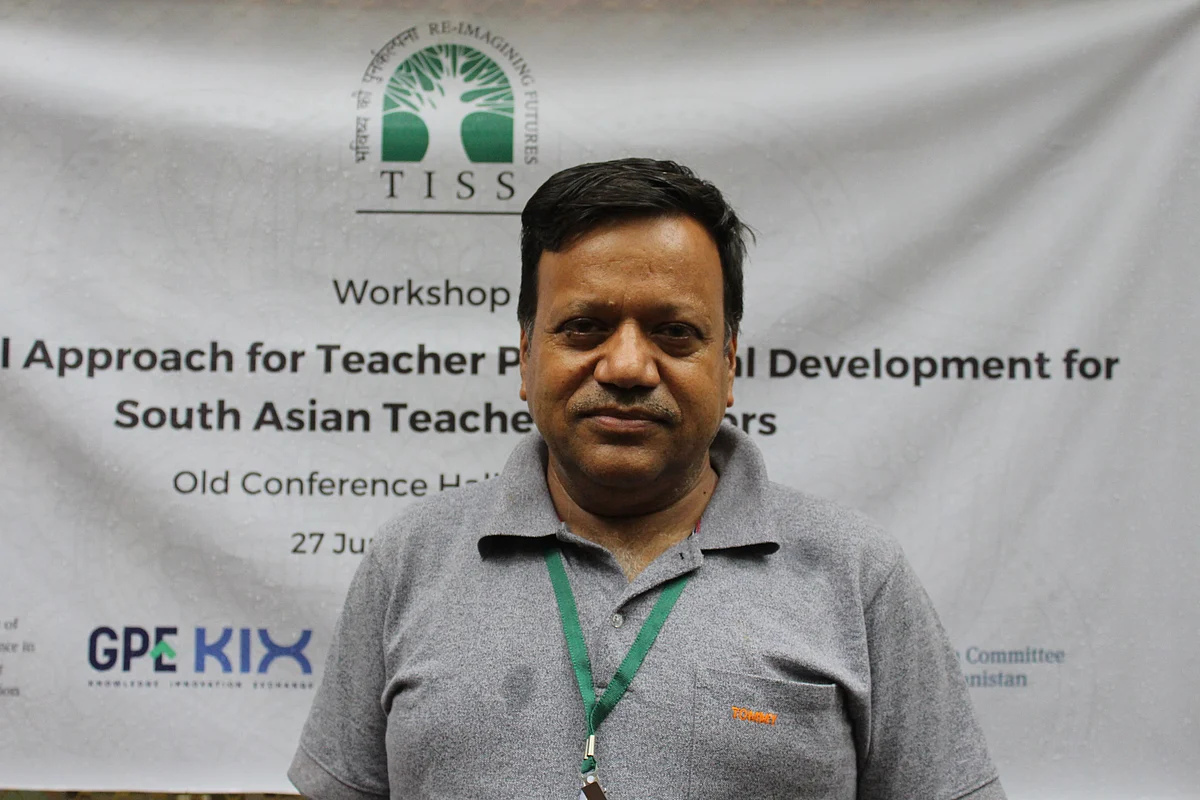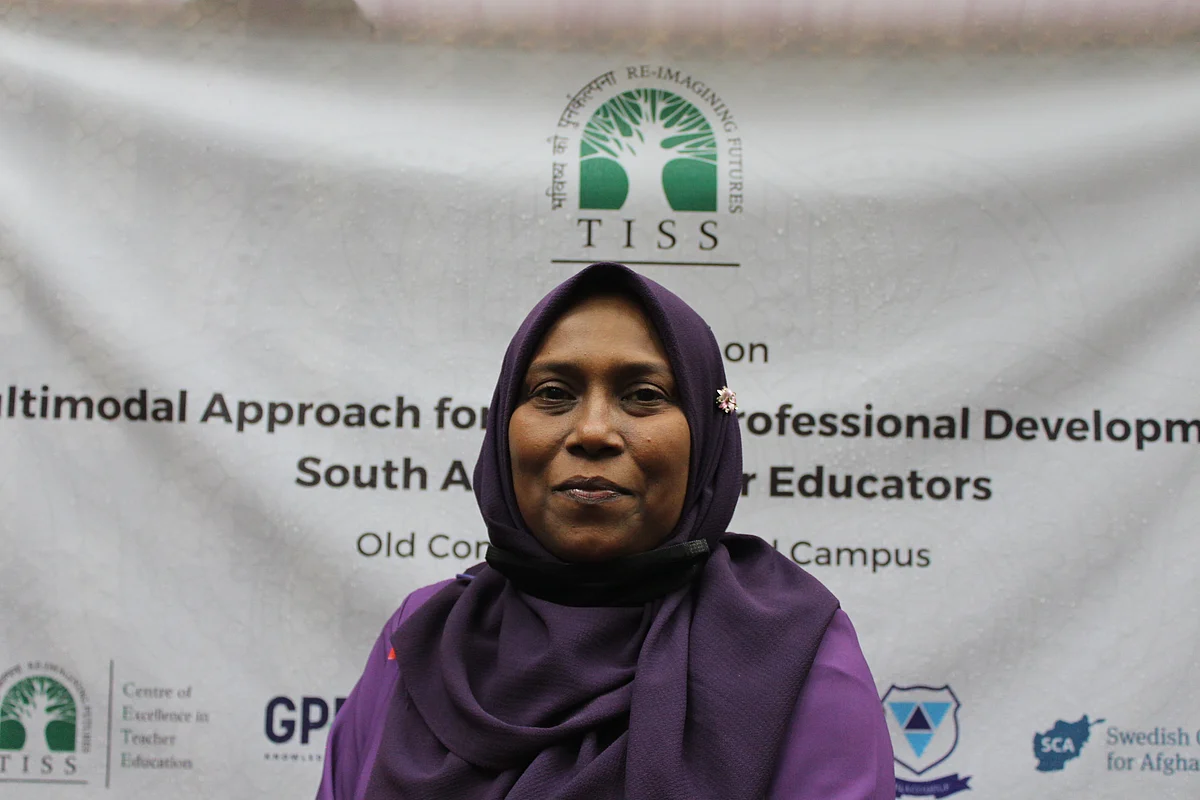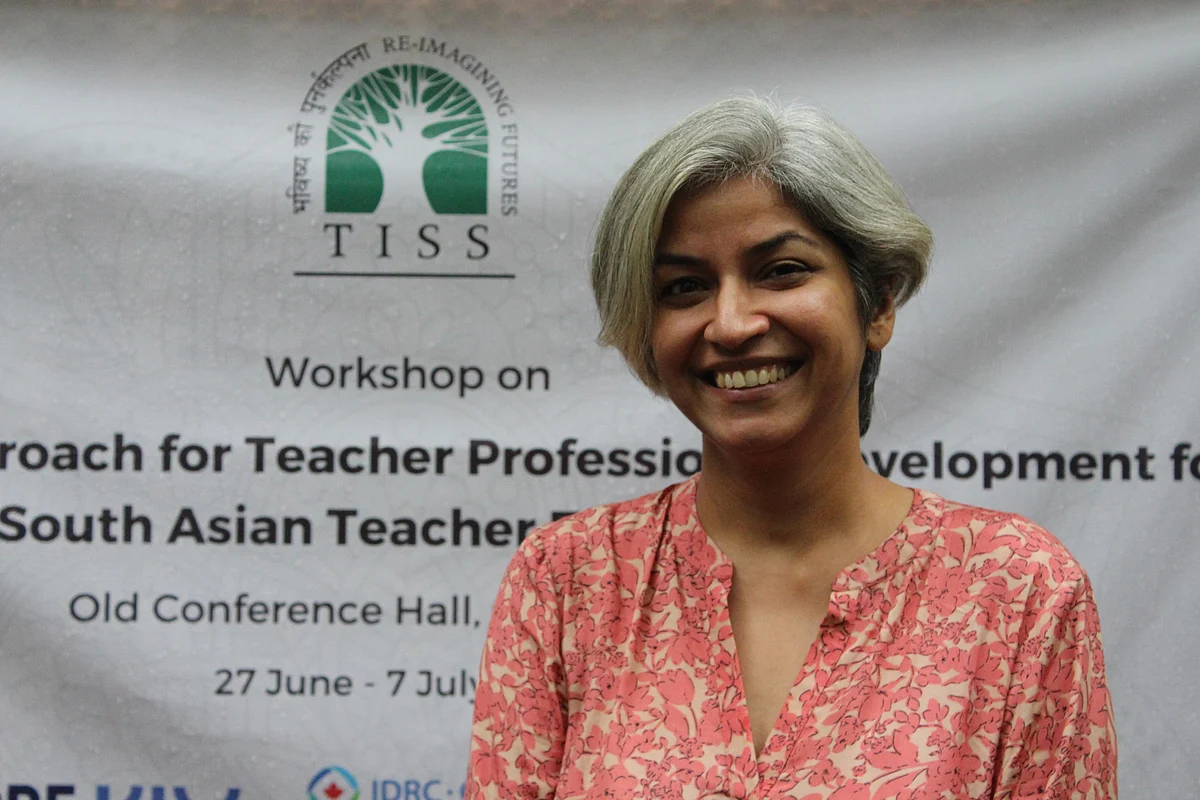The Centre of Excellence in Teacher Education (CETE), TISS conducted a workshop series for the Multimodal Approach to Teacher Professional Development (MATPD) project. This workshop series includes over 30 fellows from Maldives and Nepal. Over the duration of the last few days, the fellows were hard at work learning insights on action research.
The MATPD fellows come from diverse backgrounds - they are teachers, teacher educators and also officials in national and state level organisations.

Mr. Raj Kumar Dhakal
Mr. Raj Kumar Dhakal, Science Teacher, Gandhaki Boarding School, Nepal
When the pandemic hit, none of us were ready, educational institutions were affected and we were all scrambling to find solutions. Like every other teacher, my concern was whether my students were coping well, and how I would engage them effectively. The situation improved to a certain extent when the government began training teachers in applications such as G-Suite, Zoom, and Google Meet. Teachers began to use these tools to start the learning process for their students.
In Nepal the major challenge is reaching students in very remote locations. I had a student who used to walk for 3 hours to the nearest municipal office so that she could gain access to internet connection to join her classes. But there were still many who simply couldn’t gain access to mobile or internet connection during the lockdown. For most of these students, the teachers in their localities mobilised and gave them classes to help them catch up.
One of the key ways the local teachers accomplished this was through FM Radio. Radio is very popular in Nepal, and we had pre-recorded programs which covered various parts of the school syllabus. The best part of radio is that if one household in a locality has access, the rest can easily listen in and gather insights. Throughout the pandemic, communities in remote areas played a vital role in helping students continue their studies. I believe that students gained access to unique authentic learning experiences, where many things they learnt about health and hygiene began to be integrated in their personal lives.
Post the pandemic, I believe that teaching pedagogies have changed for the better, we teachers are actively using ICT in our classrooms. At first, these tools weren’t taken seriously but now we are meaningfully integrating them in our lessons. The experience has strengthened our confidence in integrating ICT tools and we as teachers understand that students nowadays are more digitally inclined. We want to use this inclination for their betterment. We now use quizzes and multimedia content to make the educational process entertaining.”

Ms. Aishath Naseer
Ms. Aishath Naseer, Senior Development Analyst, National Institute of Education, Maldives, with inputs from Ms. Fathimath Azeema
We had a programme a few years before the pandemic, which provided free tablets to all school children. At that time we didn’t foresee its usefulness. But during the pandemic, when we transitioned to online classes, most students had devices to work with due to this measure. I remember one of my friends telling me, ‘I don’t know how I can do this.’ This reflected the majority of teacher’s mindset who were grappling with this sudden switch.
Our teachers before the pandemic, relied heavily on traditional teaching methods with face-to-face testing and hard copy material. Naturally making the switch to digital tools was hard, but our policy makers and government stepped in ably. Our teachers got trained and are still undergoing inservice and preservice training in ICT. One of our successes in the pandemic was our ‘TeliKilaas’ . This project was a huge undertaking where a lot of teachers taught subjects for students in pre-recorded sessions. These sessions were broadcasted on our national channel so that students could tune in regularly. Each episode focused on different subjects and catered to different grades. A lot of schools took part in this endeavour and this project won accolades.
Post the pandemic, we feel that teachers are much more competent working with ICT in classrooms. Teachers have also found a new lease in their careers by working with interactive applications and pushing themselves creatively. Despite all this I feel that some subjects like chemistry and biology which require practicals still will rely on the traditional methods of teaching.
During our time in the MATPD workshop I met so many wonderful individuals from other countries. It solidified the feeling that all every teacher wants is to help their students become ready to face the world. We believe that such projects, which bring in different perspectives, give us teachers a chance to implement new techniques in our curriculum and pedagogy.

Dr. Ruchi Kumar
Dr. Ruchi Kumar, CETE- TISS, Co-Principal Investigator, MATPD
“ During the pandemic, Indian teachers had to step up the learning curve to address the digital divide since many schools went online. However, there were a significant number of students and teachers who struggled during this stage. I spent the first few months of this time conducting several online training sessions for teachers to introduce a variety of useful digital tools and open educational resources critical for online classes.
CETE was already working in the space of Ed-tech since 2015, to create and implement open education resources in a large-scale field action research project called Connected Learning Initiative (CLIx). A team of members from CETE created a host of open educational resources during the pandemic and made it freely accessible to teachers, B.ED students and even teacher educators. Some of these resources were in the form of courses called COOL (Connected Open Online Learning) which were also hosted on NCTE website. All these resources were made freely available to people to support learning and meaningfully integrate ICT in their classrooms.
CETE also worked at the state level in collaboration with Tata Trusts, Adhyayan Foundation and SCERT Goa. We designed and trained around 10,000 teachers across Goa in May- June 2020 to prepare them to transition to online classes. However, we also realised that just one set of workshops will not suffice and teachers required continuous engagement. Hence, we developed “School Synergy” with the purpose of developing and sharing knowledge and resources over a consistent period of time. I can recall a very engaging session in which a facilitator used different types of hand gestures to engage all learners. Over thousand teachers were benefited, and this led to the development of a community on Telegram. This community has grown to more than 700 now, and provides a safe space to learn through mistakes as well as through collaborative learning.
My work with MATPD has been very illuminating to identify so many similarities in our contexts across different South Asian countries i.e Nepal, Maldives and Afghanistan in terms of culture as well as educational issues. We are able to appreciate the diversity in the experiences of the fellows from different and remote geographical parts of these countries.
In Maldives, the issue of teaching multigrade schools is important and is common across all country contexts in remote settings. However, they are trying to address this using ICT and they believe that they have adequate resources to do that.
In the case of Nepal, the teaching certificate programme has action research as part of course requirement for though it is not done seriously. What is needed is guidance and mentorship for teachers to engage in action research to find contextualised solutions.
In all the countries' contexts the present system emphasises monitoring of teachers and provides very little opportunities for teachers to become more effective. There is little scope for teachers to talk about their classroom experiences, to learn from each other and to develop the knowledge of teaching and learning. The MATPD workshop has given us the opportunity to listen to so many diverse experiences and stories. We hope to build on these experiences and learn from each other in the course of the project going ahead.






